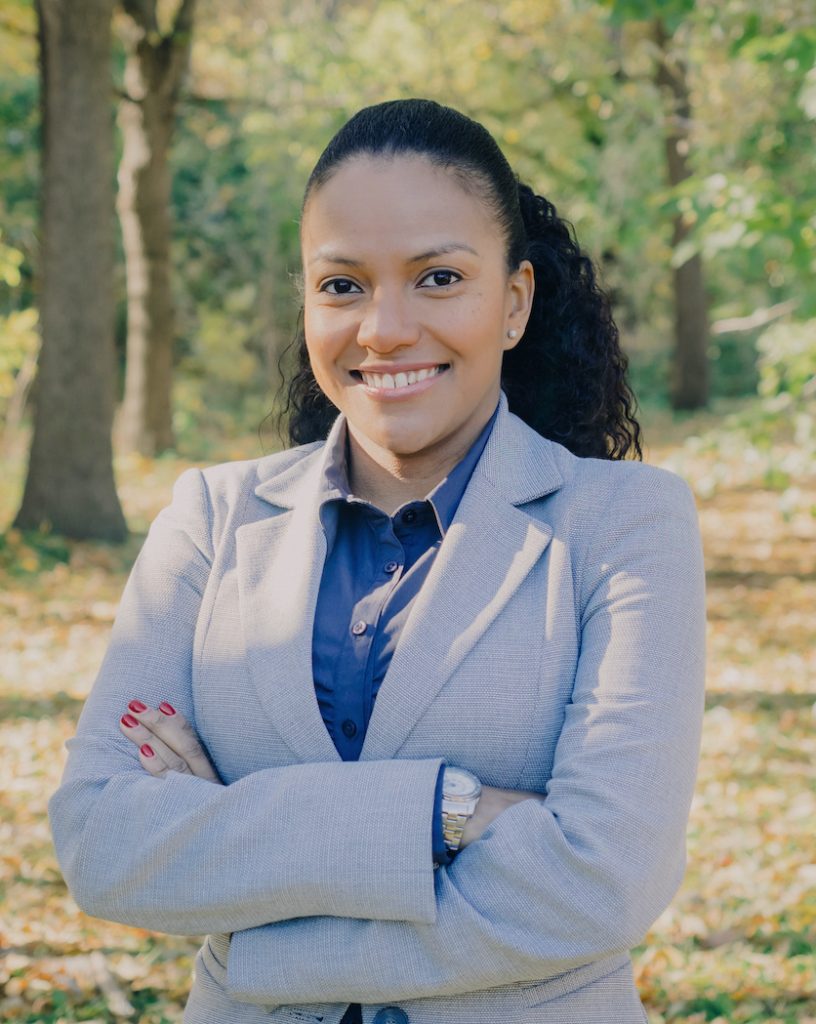Pilot Program for Black Post Doctoral Fellows is in Motion
October 21/2020
by Françoise Makanda, Communications Officer at DLSPH
The Dalla Lana School of Public Health has already welcomed two post-doctoral fellows to its pilot program that nurtures early-career Black academics, helping to ensure that rising stars have opportunities to develop their research programs.
Both postdocs are already working on independent research. Nakia Lee-Foon is being supervised and mentored by Dean Adalsteinn (Steini) Brown, and Mabel Carabali by Prof. Arjumand Siddiqi.
“It’s really about making sure that there is a concerted effort to provide opportunities for Black doctoral fellows so that discrimination in academia doesn’t shut them out from opportunities they deserve,” says Siddiqi, the Head of Epidemiology at DLSPH.
Pilot leads will work with fellows to understand their academic goals and nurture their development en route to a permanent academic job. Siddiqi says the program is necessary because Black PhD graduates face barriers in gaining opportunities in academia.
Postdoctoral fellowships provide time following PhD completion to develop their own research. It’s also an intermediate step to a professorship.
“Our job is not to turn these postdoctoral fellows into us and tell them that they need to work on that we’re already doing,” says Siddiqi. “We need to nurture their interest and their talents and help enhance their research interest.”
As well, she says, the postdocs will likely enhance their supervisors’ work with their own perspectives and lived experiences.
Using Canadian data, Colombian-born physician Mabel Carabali will apply spatial statistics, econometric measures of inequalities and integrative methods she developed during her PhD to analyze the spatial distribution of COVID-19 and socioeconomic and ethnic inequalities.
“The use of spatial statistics to assess disease distribution isn’t new, but its integration to quantitative measures of inequalities in infectious diseases is a relatively novel approach,” says Carabali.
She acknowledges the work will be challenging, as Canada does not collect ethnic-based data – but working with Siddiqi’s Social Epidemiology Lab will be instrumental to navigate these obstacles.

Mabel Carabali
Following ten years working at an international scale, first on baseline epidemiological data on the burden of dengue at the International Vaccine Institute and later chikungunya and zika in Latin America and West-Africa, Carabali went back to academia. She continues to work on infectious diseases. Now, she tackles methodological issues with the use of surveillance data and assesses disease distribution from the social epidemiology perspective.
“We have surveillance data, but some inherent biases prevent their adequate use to inform policymaking,” she says. “We don’t study enough the interaction and effects of social characteristics on populations’ health. We assume the presence of socioeconomic inequalities in infectious diseases, but we rarely measure it. Before COVID-19, the analysis of social determinants was somehow neglected on infectious disease epidemiology.”
Carabali says she is Afro-Latina. Although Colombia hosts the fourth largest African-descendant and Black population in the Americas, education, access to healthcare and other opportunities are not equal for Afro-Colombian or indigenous populations, she says.
Although she is pleased to be one of the two inaugural Black Post-Doctoral fellows, it’s a double-edged sword, she says. She wants to be recognized for her academic qualifications and research regardless of her skin colour. But she recognizes that opportunities are not always given to Black scholars due to racism. In general application pools, discrimination can cause highly qualified Black students to be overlooked, Siddiqi says. DLSPH is investing to address that gap.
Carabali is overjoyed to have Siddiqi as her mentor, something she had long wanted during her professional and educational journey. “It is a unique opportunity to work with someone who is and understands all the intricacies and challenges a woman Black scholar faces in academia,” she says.
This is one small part of an extensive strategy to ensure the School is taking proactive steps in ensuring equal opportunities for various communities especially racialized scholars.